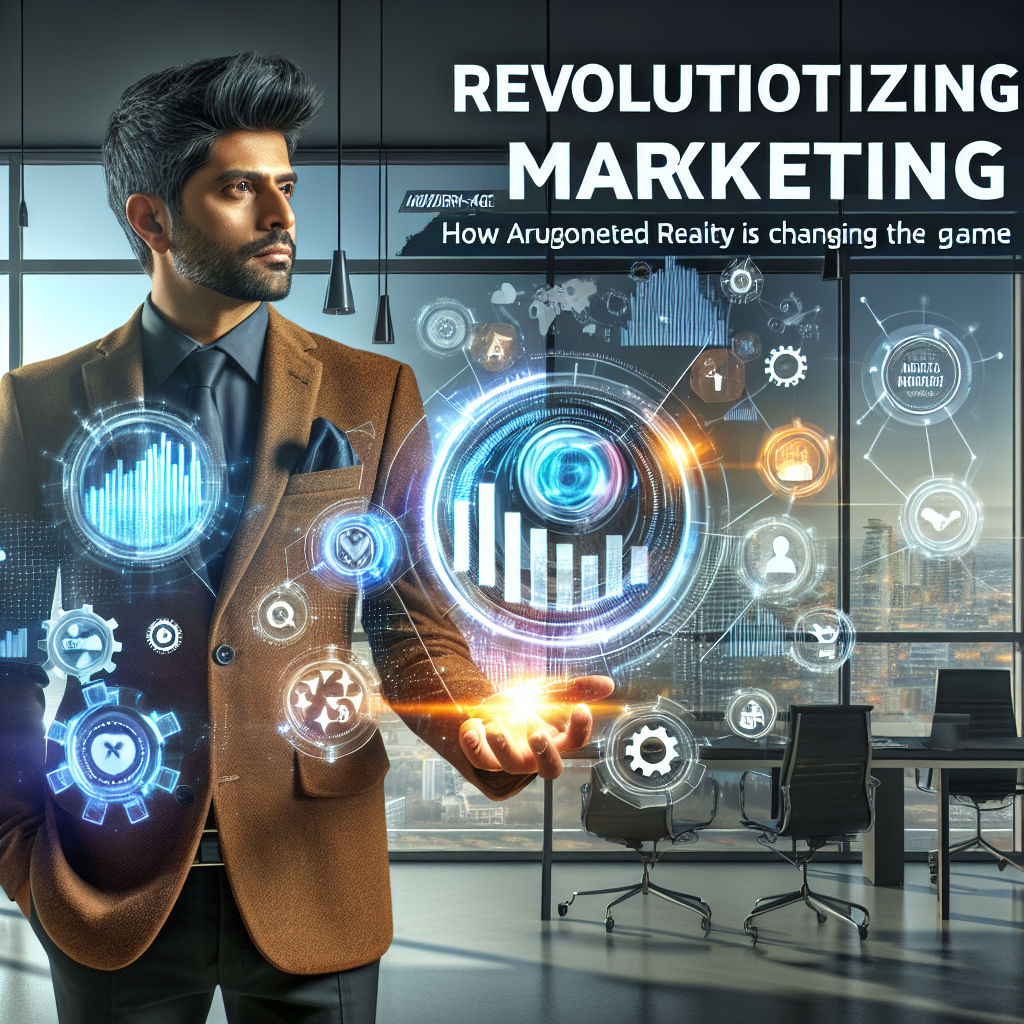Revolutionizing Marketing: How Augmented Reality is Changing the Game
In today’s fast-paced digital world, businesses are constantly looking for new ways to reach and engage with their target audience. One of the most innovative technologies that is revolutionizing marketing is Augmented Reality (AR). AR allows users to interact with digital information in the real world, creating an immersive experience that blurs the lines between the physical and digital worlds. This technology has the potential to completely transform the way businesses market their products and services, creating new opportunities for engagement and interaction with consumers.
Augmented Reality is not a new concept, but recent advancements in technology have made it more accessible and affordable for businesses of all sizes. AR can be used in a variety of ways to enhance marketing efforts, from interactive product demonstrations to virtual try-on experiences. By incorporating AR into their marketing strategies, businesses can create more immersive and engaging experiences for consumers, leading to increased brand awareness and loyalty.
One of the key advantages of using AR in marketing is its ability to create a personalized experience for consumers. By using AR technology, businesses can tailor their marketing messages to individual users, delivering targeted content that is relevant and engaging. This level of personalization can help businesses stand out in a crowded marketplace and build stronger relationships with their customers.
Another benefit of using AR in marketing is its ability to provide valuable data and insights into consumer behavior. By tracking how users interact with AR experiences, businesses can gain a better understanding of their target audience and make more informed decisions about their marketing campaigns. This data can be used to optimize future marketing efforts and improve overall ROI.
AR can also help businesses bridge the gap between the online and offline worlds. By using AR in physical locations, such as retail stores or event spaces, businesses can create unique and interactive experiences that drive foot traffic and increase sales. For example, a clothing retailer could use AR technology to allow customers to see how different outfits look on them before making a purchase, leading to higher conversion rates and customer satisfaction.
In addition to enhancing the customer experience, AR can also provide businesses with a competitive advantage in the marketplace. By leveraging AR technology, businesses can differentiate themselves from competitors and attract new customers who are looking for innovative and engaging experiences. This can help businesses increase market share and establish themselves as industry leaders in their respective markets.
Overall, Augmented Reality has the potential to revolutionize marketing by creating new opportunities for engagement and interaction with consumers. By incorporating AR into their marketing strategies, businesses can create more personalized and immersive experiences that drive brand awareness, customer loyalty, and sales. As AR technology continues to advance, businesses that embrace this innovative technology will be well-positioned to succeed in the ever-evolving digital landscape.
FAQs:
Q: What is Augmented Reality (AR)?
A: Augmented Reality is a technology that overlays digital information on top of the real world, creating an interactive and immersive experience for users. AR allows users to interact with digital content in real-time, blurring the lines between the physical and digital worlds.
Q: How is AR different from Virtual Reality (VR)?
A: While both AR and VR involve the integration of digital content into the real world, they are fundamentally different technologies. AR adds digital elements to the real world, allowing users to interact with both physical and digital objects. VR, on the other hand, creates a completely immersive digital environment that users can interact with using a headset or other device.
Q: How can businesses use AR in their marketing efforts?
A: Businesses can use AR in a variety of ways to enhance their marketing efforts, such as creating interactive product demonstrations, virtual try-on experiences, and personalized messaging. By incorporating AR into their marketing strategies, businesses can create more engaging and immersive experiences for consumers, leading to increased brand awareness and loyalty.
Q: What are the benefits of using AR in marketing?
A: Using AR in marketing can provide businesses with a number of benefits, including personalized experiences for consumers, valuable data and insights into consumer behavior, and the ability to bridge the gap between the online and offline worlds. AR can also help businesses differentiate themselves from competitors and attract new customers who are looking for innovative and engaging experiences.
